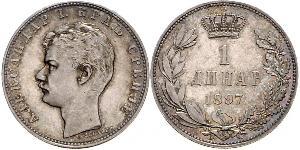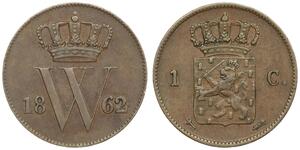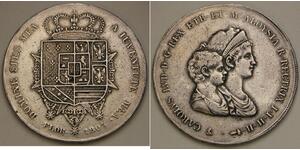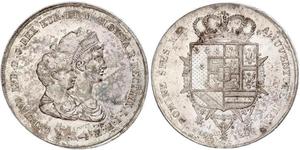5 Dinar Bahrain Silver
1988, Kingdom of Bahrain. Large Proof Silver 5 Dinars “WWF” Coin w. COA!
Reference: KM-13. Mintage: 25,000 pcs. Denomination: 5 Dinars Material: Silver (.925) Weight 19.44gm
Bahrain (Arabic: البحرين al-Baḥrayn), officially the Kingdom of Bahrain (Arabic: مملكة البحرين Mamlakat al-Baḥrayn), is an Arab constitutional monarchy in the Persian Gulf. It is an island country consisting of a small archipelago centered around Bahrain Island, situated between the Qatar peninsula and the north eastern coast of Saudi Arabia, to which it is connected by the 25-kilometre (16 mi) King Fahd Causeway. Bahrain’s population is 1,234,571 (c. 2010), including 666,172 non-nationals. It is 765.3 square kilometres (295.5 sq mi) in size, making it the third-smallest nation in Asia after the Maldives and Singapore.
Bahrain is the site of the ancient Dilmun civilisation. It has been famed since antiquity for its pearl fisheries, which were considered the best in the world into the 19th century.11 Bahrain was one of the earliest areas to convert to Islam (ad 628). Following a period of Arab rule, Bahrain was occupied by the Portuguese in 1521, who in turn were expelled in 1602 by Shah Abbas I of the Safavid dynasty under the Persian Empire. In 1783, the Bani Utbah clan captured Bahrain from Nasr Al-Madhkur and it has since been ruled by the Al Khalifa royal family, with Ahmed al Fateh as Bahrain’s first hakim. In the late 1800s, following successive treaties with the British, Bahrain became a protectorate of the United Kingdom. In 1971, Bahrain declared independence. Formerly an emirate, Bahrain was declared a Kingdom in 2002. In 2011, the country experienced protests inspired by the regional Arab Spring.
Bahrain had the first post-oil economy in the Persian Gulf. Since the late 20th century, Bahrain has invested in the banking and tourism sectors. Many large financial institutions have a presence in Manama, the country’s capital. Bahrain has a high Human Development Index and was recognised by the World Bank as a high-income economy.
(1537 X 756 pixels, file size: ~152K)
Posted by: anonymous 2019-01-21
1988, Kingdom of Bahrain. Large Proof Silver 5 Dinars "WWF" Coin w. COA! Reference: KM-13. Mintage: 25,000 pcs. Denomination: 5 Dinars Material: Silver (.925) Weight 19.44gm Bahrain (Arabic: البحرين al-Baḥrayn), officially the Kingdom of Bahrain (Arabic: مملكة ال ...
(1605 X 600 pixels, file size: ~148K)
Posted by: anonymous 2015-11-12
BAHRAIN 1986 5 Dinars Silver Proof
1 Cent Kingdom of the Netherlands (1815 - )
group has 18 coins / 18 prices
⇑
10 Lira Italian city-states Silver
group has 10 coins / 10 prices
⇑










-300-150-3mesHgTy6ZwAAAGPwuFVj7L2.jpg)








